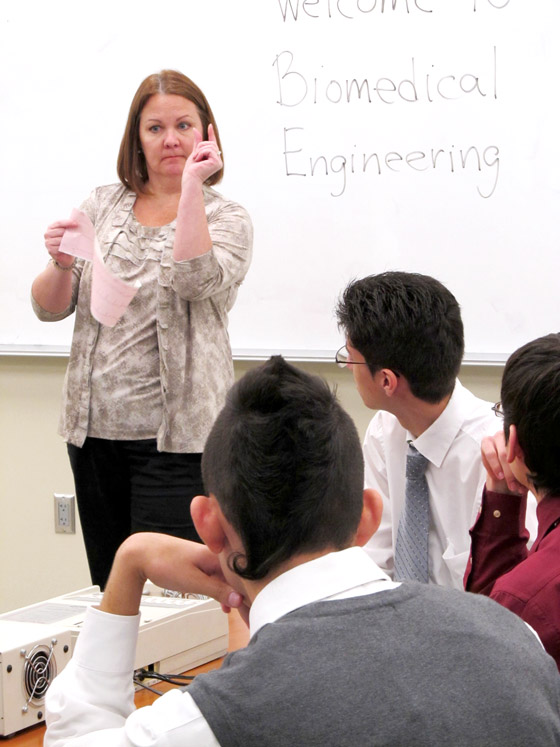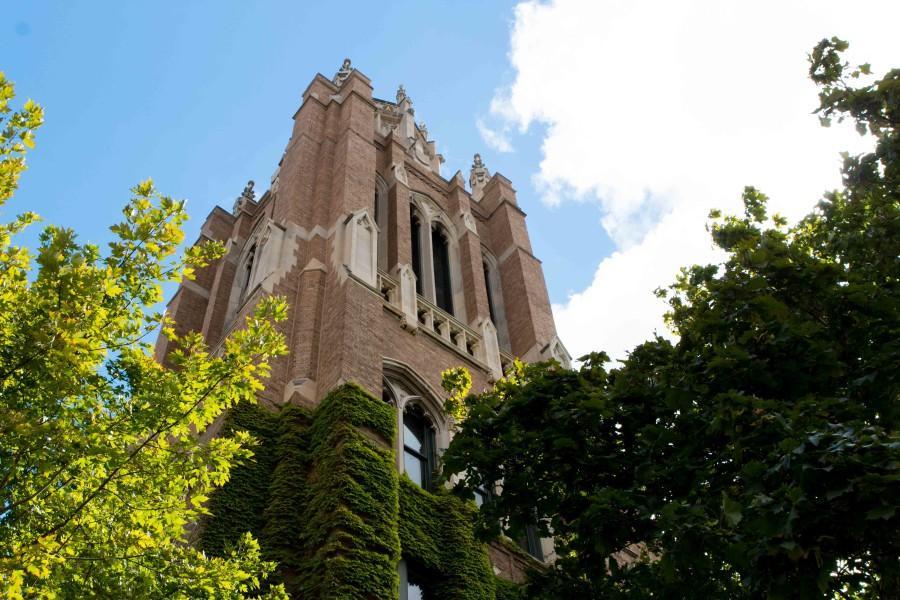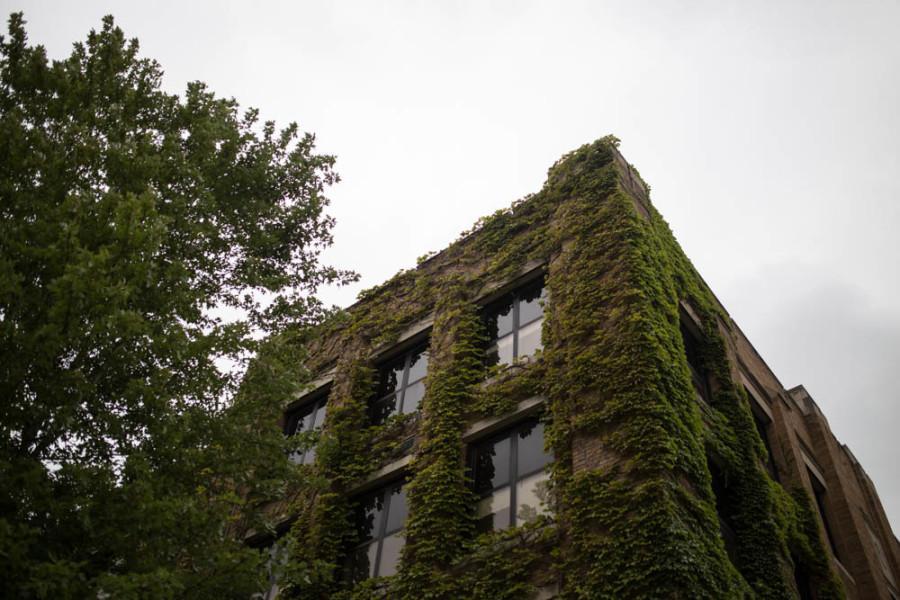Starting next summer, STEM graduates can earn a Wisconsin teaching license and a Master’s of Education within 14 months. The College of Education and the College of Engineering received a $1.2 million grant from the National Science Foundation this May to fund the accelerated program.
The Noyce Scholar Program for STEM Teaching offers each student a $17,400 tuition scholarship and a monthly stipend. Support from internal partners such as the graduate school of education sets the maximum tuition cost at less than $3,500. This is a similar structure to the former undergraduate program, which is now defunct.
Lead contributors include Barbara Silver-Thorn, professor of biomedical engineering, and Ellen Eckman, professor and chair of educational policy and leadership.
Silver-Thorn said they designed the initiative to improve upon the undergraduate Noyce Scholars program, which ran on NSF funding for five years.
“(The undergraduate) program required that students basically declare that they were going to do engineering and STEM teaching as first semester sophomores. So you’re like 19 years old, that’s a really hard time to say, ‘That’s what I want to do,’” Silver-Thorn said. “The later it is for them, the better.”
The program allows students to focus on STEM content as undergraduates and complete the education portion afterwards. For juniors or seniors who decide to teach, they have this accelerated option is a quick way to fulfill the education requirement, when in the past it would have been too late to pursue education as an upperclassman.
Silver-Thorn said the initiative is also geared towards STEM majors in the workforce. Pursuing education is difficult for practitioners because they must give up their income and attend school full-time, a path which typically takes upwards of two years.
“(The program) is not as big of a commitment, and it’s nearly fully scholarship supported so I think that makes it an easier choice,” Silver-Thorn said.
Silver-Thorn said a national shortage of STEM teachers contributes to the need for the program. The demand allows teachers to pursue higher salaries, and the result is a frequent turnover rate as they move from offer to offer.
“There really is a shortage, and I look at it from an engineering perspective. If we want to have strong engineers, they need to have a strong math and science background in high school,” Silver-Thorn said.
Theresa Dobbs is an alumna who graduated from the Undergraduate Noyce Scholars Program in 2014, and she currently teaches math at the Milwaukee School of Languages. Growing up, Dobbs had teachers who inspired her to pursue math.
“I think especially for underrepresented groups, there’s these persistent disparities that exist in the STEM field. For women and people of color, it often makes a big difference to have a role model. You have someone who you can point to and say, ‘If they can do it, then so can I,’” Dobbs said.
Dobbs said her undergraduate experience had more classroom time than the typical program. She encourages aspiring STEM teachers to take advantage of as many hands-on opportunities as possible.
“It’s one thing to get A’s in your classes in college, and it’s definitely another thing to be able to apply the best teaching practices,” Dobbs said. “Learn what you can about education and what it is to be a teacher so that you’re prepared for when you’re thrown into that environment.”
Eckman said because students have the content mastered, the program focuses on the hands-on learning which Dobbs spoke of. Applicants will be required to take the Graduate Record Exam and the Praxis tests to ensure content knowledge.
“The idea is that they already have the content, so we’re trying to do the theory all at once. And we think we can,” Eckman said.
Applications are due February 2018, and the program aims to accept seven to 10 students. Eckman said she hopes to expand the program after the grant’s five-year life ends.
“I hope that it becomes a model for preparing graduate students for education in all the fields, not just STEM,” Eckman said.
“We’re really excited about this new cohort,” Silver-Thorn said. “I think this is going to really prepare the teachers to make a difference and handle the classroom and ultimately stick with teaching.”




